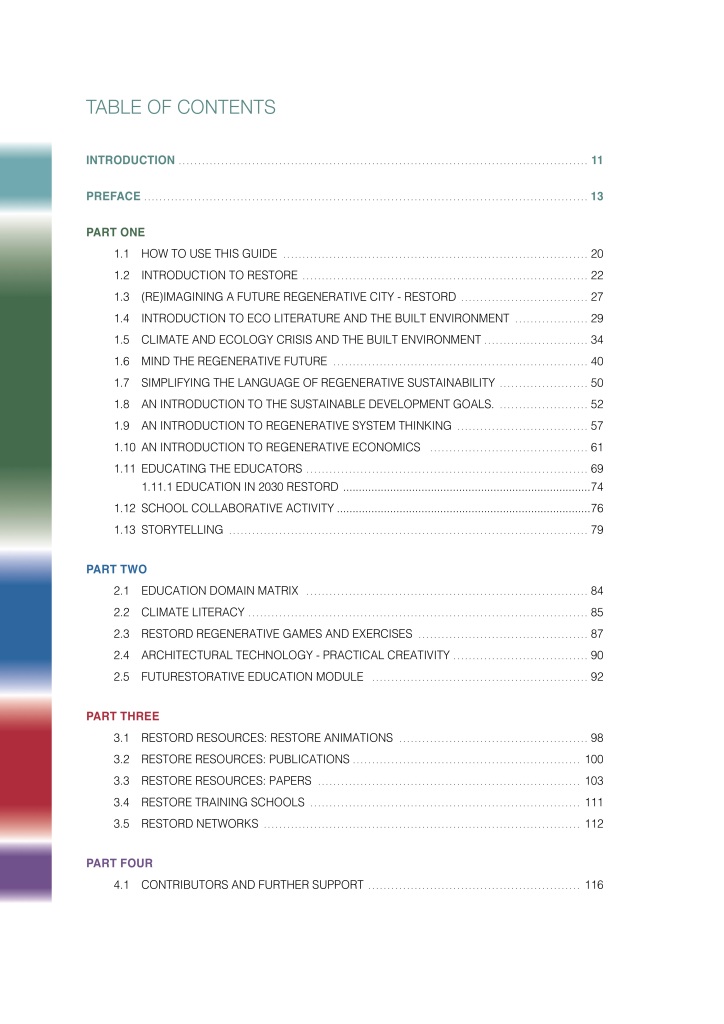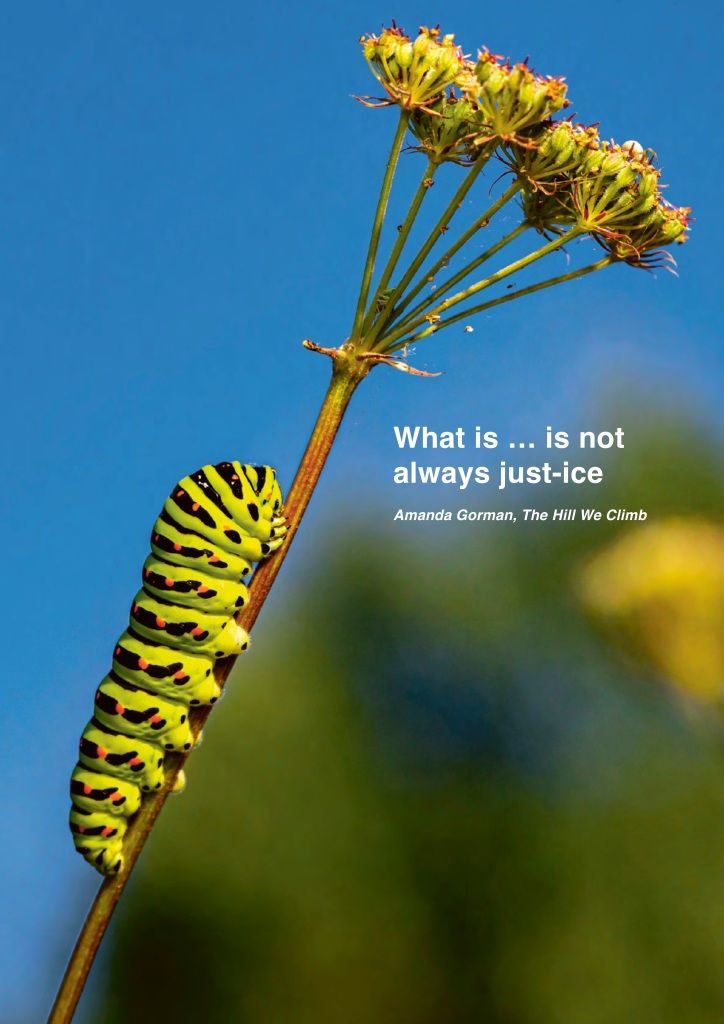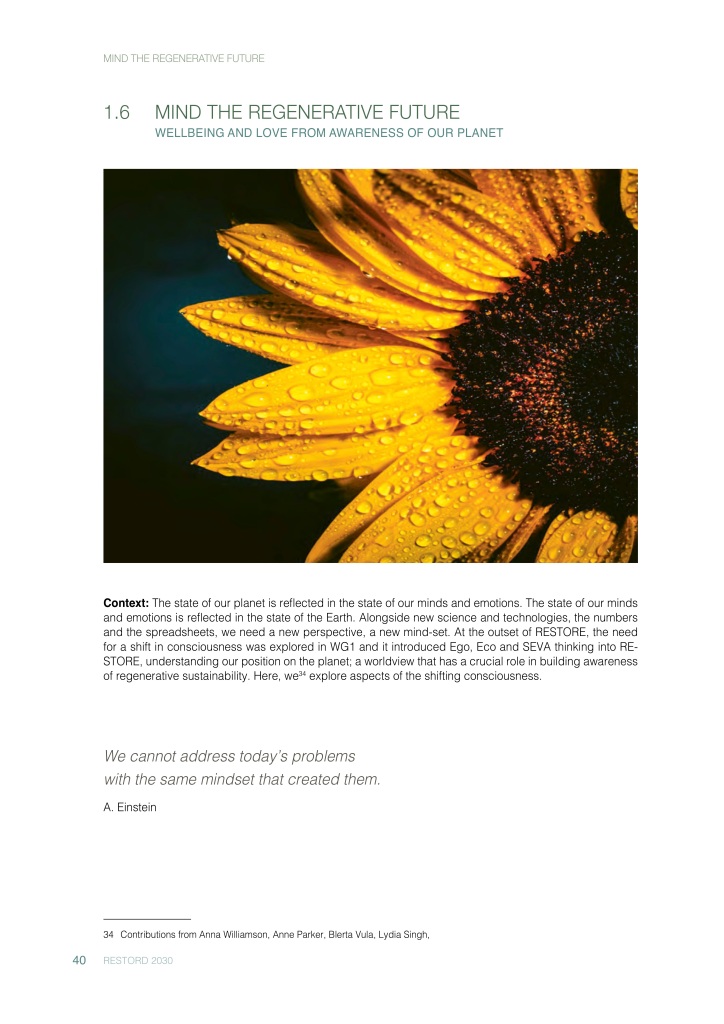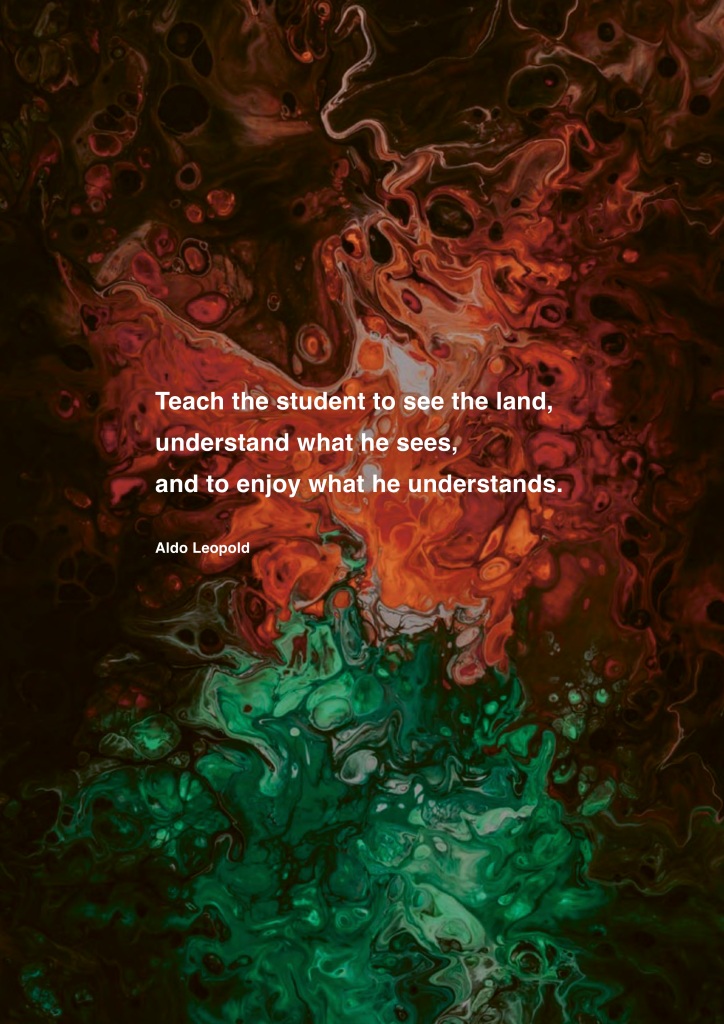RESTORD 2030 A Regenerative Guide for Educators, Students and Practitioners.
A primer for the (re)imagination of a city ten years into the future. The City of RESTORD.
We are on the cusp of something regeneratively wonderful or something irreversibly disastrous. Use of the word ‘regenerative’ has seen a welcome resurgence, applied to everything, from farming to leadership, fashion, culture, economics and the built environment.
Its current use reflects the urgency we now face as climate change and ecological breakdown become increasingly palpable. It represents a desire and a focused switch in mindset, away from the mechanistic, away from being only less bad, the common and dominant discourse, to one that is living and sees ourselves and the built environment as interactive parts of the beautiful and complex ecosystem web.
RESTORE: {verb} to bring back to a state of health, soundness, and vigour.
RESTORD: {noun} a city that is socially just, ecologically robust and culturally rich.
RESTORD2030, a guide for educators, students and practitioners, will be of interest to teachers in primary and secondary education, to lecturers and teachers in university education and those delivering sustainability courses, and workshops, including continuous professional development for (planning, design, construction, facilities management) practitioners. It is available for free download below.
RESTORD 2030 aims to inspire users to create new and enhance existing sustainability modules with a regenerative climate and ecological focus.
It is pinned on the need for us to understand what good looks like and to imagine a regenerative future, and then to identify the steps that will move us towards that goal.
It is not that regenerative thinking is new. It has been at the core of ecological thinking for decades, traced back to acclaimed and influential writers on nature and ecology such as Aldo Leopold, Rachel Carson and many others. Importantly, it has likewise been the foundation of many indigenous cultures since time immemorial.
Along with the increased use of the term ‘regenerative’ we have a changing narrative. And this is important, as it is narratives that define us and contribute, in turn, to how we define and shape our future. The future is not something that just happens to us, but it is something that we create. As Arundhati Roy noted in April 2020, we need ‘to imagine the future we want and be prepared to fight for it’.
Yet, unless we urgently address the level of ecological and climate literacy, and levels of climate awareness within all areas of education, we will not have the narratives, insights and knowledge to imagine our future, to recognize goodness and what it looks like and to be able to fight for it.
“to all who work in the built environment – the explicit purpose of your work must be to craft and cultivate the fertile conditions for life to thrive.”
Michelle Holliday preface to RESTORD2030 ‘‘Love Letter to Those Who Shape our World’.
Part One contains a selection of new thoughtful articles on education and awareness interventions based on, and enhancing the work from RESTORE publications, relating to the need for a new mindset and a nar-rative for a regenerative future.
Part Two provides insights into what modules are available through RESTORE members and the wider regenerative fraternity.
Part Three provides a reference portal into the myriad publications, presentations, articles, papers, videos and more from the four years of the RESTORE action.
Part Four provides a listing with details of the authors and contributors who can be contacted to facilitate elements of regenerative focused education and to give relevant advice on those themes.
The most important aspect of regenerative business today is to inspire future generations, future projects and future ideas to reach higher, to be bolder and to be far, far, more disruptive.
Martin Brown. Author
EDITORS
Martin Brown, Carlo Battisti.
CONTRIBUTORS
Ann Vanner, Alison Watson, Blerta Vula, Giulia Sonetti, Ivan Šulc,
Jelena Brajković, Zvi Weinstein, with Michelle Holliday (Guest Preface) Anna Williamson (TM and Vastu Architecture). Scott McAulay (Climate Literacy) Francesco Gonella (Systems Thinking) and Lydia Singh (RegenVast)





